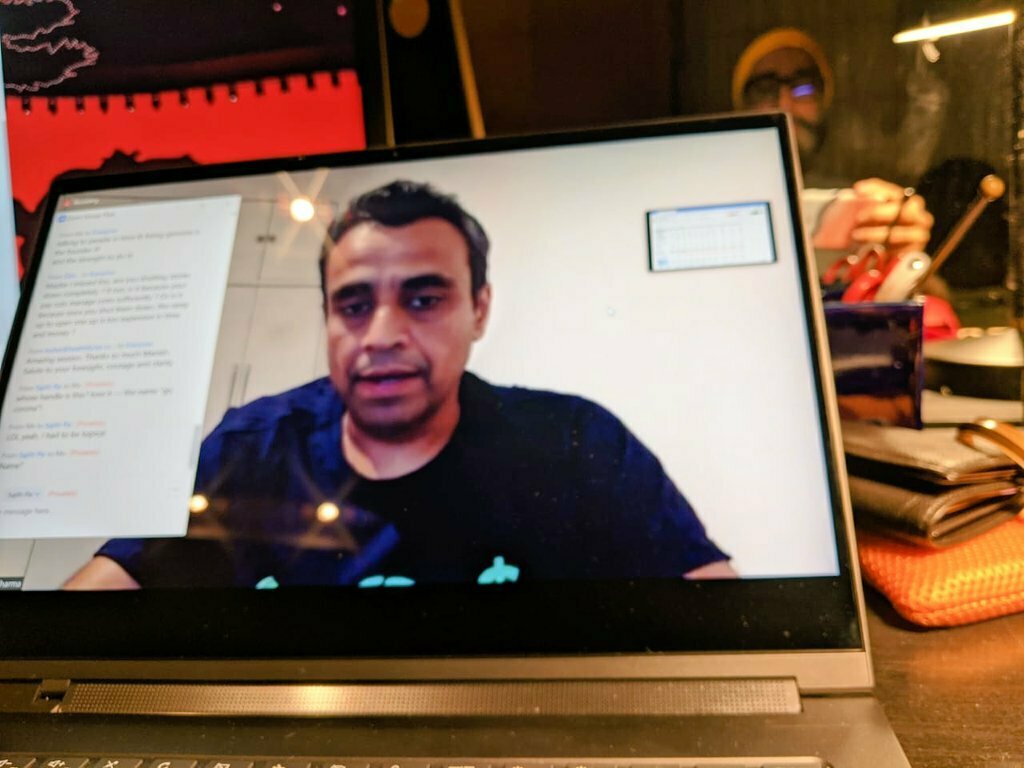Davids Vs COVID: Becoming A Wartime CEO
- Published
- Reading Time
- 6 minutes
Over the next few months, as the world braces to eradicate the virus, startup founders will have to fight a battle for survival before they embark on the next phase of growth. No one knows how much time will it take for us to drive the virus out, but the broad consensus is that even if it goes away in the next 2-4 weeks, a long haul of 3-6 months is what it will take for the situation to come back to normal. And when this seems to be the best-case scenario, the startup community will need an unprecedented level of preparedness to deal with the situation. It is time, now, to be a ‘Wartime CEO’.
Blume has come up with a series of conversations to support our founder community in mitigating COVID risks – conversations led by the founders, for the founders. This is the first post in a series of ‘DAVIDs vs COVID’ posts. This one features Manish Sharma (Co-founder & CEO, Printo) – a Blumier who has handled similar near-death situations in the past. He was probably one of those few founders in our portfolio who ‘saw it coming’ early March and immediately started putting together a contingency plan.
The audience was a receptive group of 80+ Blumiers dialed in from across cities on Zoom.
The below article is especially relevant for those whose business operations have been impacted negatively by COVID-19 and do not have a large cash balance to fall back on. If your business is entirely digital or hasn’t been impacted by COVID-19, or are well-funded, or combinations of any of those, this isnt probably a relevant read for you.
Before diving in, Manish addresses that you have to understand what you CAN and CANNOT control – CONSTANTS & VARIABLES
- Constants are factors that are impossible to impact and are uncontrollable. It includes the circumstances beyond the control of the founders and their teams. This can even include a part of the sales/customer behaviour in times like these.
- Variables are the factors that are seemingly within the founder’s control and include things like communication with stakeholders including vendors/shareholders / employees, costs of the business, cash outflows, etc
The context of course determines the Constants, and your skills determine how much of the Variables and how far you can influence them. Through this session, Manish extensively focuses on the Variables, ofcourse.
(Note: Manish had an interesting name for this exercise – he called it CODE RED – so as to communicate the urgency of this to his team. And the plan they drew a few days prior when the scenario hadn’t been as bad was called CODE ORANGE.)
We thought an interesting two-point framework emerged out of Manish’s toolkit –
- DEALING WITH YOUR BUSINESS: Post-COVID, all the calendar year AOPs get reset with the new circumstances in the picture.
- DEALING WITH PEOPLE: With unpredictable times ahead, founders can’t forego tough conversations in the context of pay cuts, layoffs, and unfulfilled incentives.
- DEALING WITH YOUR BUSINESS
Prioritize attention to cash flows
There should be one person, ideally the founder, whose full-time job is to just watch out and monitor daily cash flows. Yes! Nothing less than daily works. Yes, you will manage to take care of the bigger things; it is the small things that have the potential to cause damages.
Know your company’s health (KYC) TODAY: Watch early signs of distress – When everything – revenue, cost, EBITDA, sales – goes off by 10%, we are staring at a potential challenge to survive.
ACTION matters, PACE matters more.
Relook at the constants and variables listed above and redraw the business plan IMMEDIATELY.
Every assumption needs to be tested and validated and needs to work out the hole in the pocket. Costs need to be pruned down and this is one of the few variables under the control of the business. Model scenarios where you could see a full shutdown of 3-4 weeks; even zero revenue months, if required!
Pulse Check: Even after implementing all corrective measures, understand that the market is moving dynamically ALMOST EVERY DAY and hence, keeping a daily pulse on cash in and cash out is mandatory. Don’t rely on Zoho / Tally. Only watch your bank statement.
There was a remark on the risk of ‘overdoing it’ – Manish was of the opinión that do not dread it – the downside / worst case is ceasing to exist. The risk is real and the market is reacting to it every day. When things are as bad as they are, you won’t run that risk and if it happens, so be it.
- DEALING WITH PEOPLE: COMMUNICATION WITH KEY STAKEHOLDERS WILL BE TOUGH – BUT YOU HAVE TO!
Your stakeholders involved are key to the survival of your business. At a time of crisis, dealing with them sensitively becomes critical to survival –
- Employees
- The most critical part of this process – Seek out questions proactively and understand your team’s mental and financial liabilities. People may have EMIs. While it would be ideal to have F2Fs with them, in the current scenario, that will be tough. Educate them as much as you can through data. It helps to acknowledge and transparently share the fact that there are challenges that the business is facing.
- There may be discussions around salary cuts involved and it is critical to understand the employee priorities whilst execution of these plans. Lead the pack from the front: Founders can’t be the last ones to take a pay cut. Same goes for senior management where the maximum savings are possible.
- As a company grows, founders can’t and won’t know each and every person. Keep top managers informed. They will be your footsoldiers in maintaining the org pulse.
- He also remarked that employees DO NOT need extra motivation to charge them up. People have always resonated when the going is tough and that they are both supportive and charged up to take up the challenge. If people are unclear and they are keen to move on to other jobs in the market, do allow them to leave.
- Creditors
- Ensure that the CEO reaches out to key vendors / right stakeholders where payments will be deferred.
- He also mentioned that big vendors have an advantage of a lower cost of capital. Basis relationships, insist that you will defer payments. DEFER, do not WRITE OFF, as your dependency on vendors is high(er than landlords).
- Landlord: Ask for a plain write-off for three months or so with the promise of a brighter future post survival.
- A good principle to follow is to get big cuts for a few months than small cuts for a long time. Because, whether you survive or not will get determined in the next 3-6months.
- Potential financiers/shareholders: Reach out to your financier constituency and alert them that you need money. Manish candidly brought up his discussion with Karthik and me where he alerted us that he may need some financial infusion to sail through. Whilst it may not be needed immediately, but in case you feel that you will need money at some point in time, it helps to alert your investors so that when they are out there to support, you are at the top of the stack. Or least like us, they will commit to you, support and work with you to raise from other sources.
All in all,
While speaking to external stakeholders (vendors and investors) do emphasise that your company is very healthy and this is a glitch due to the economy. It is important for them to see the bright future, so they continue to bet on you and support you (with credit or new cash). One could still spare some capital for the future – investors want to see a phoenix rising from the ashes. One way to make this happen is to carve out a small team that focuses on new business and new ideas while the rest of the org is focussed on firefighting.
ABOVE ALL, STAYING CALM HELPS. EVERY DAY WILL BE ABOUT MAKING TOUGH DECISIONS. THERE WILL BE SLEEPLESS NIGHTS – find your respite!
LATEST NOTE (Post Lockdown) :
In some sense this marks the end of stage one and now the cards are on the table. Good news is that now everyone (vendors, teams, landlords) will be happy to adjust as the enormity of the situation hits us all. So here is the time to completely focus on cash flow and EBITDA, assuming sales to be zero for April.



